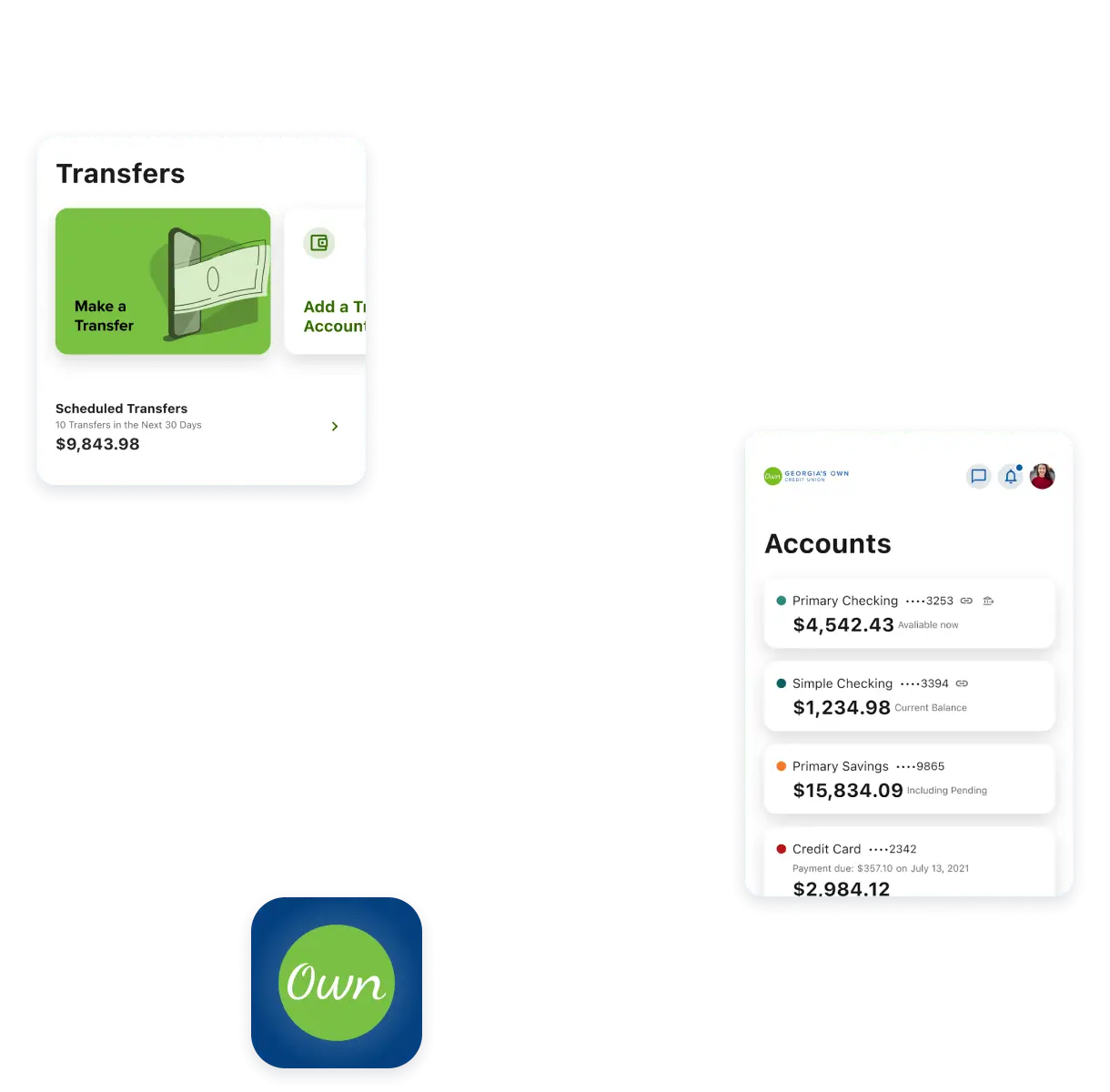Special Accounts
Estate, conservator, trust, and fiduciary accounts to make money management easier in any situation.

More than just transactions

Whether there’s a death in the family or you’re facing other big challenges, you shouldn’t have to worry about managing money. We have the accounts you need to administer your loved ones’ finances or estate.1

Your peace of mind—our highest priority
We offer a range of accounts to simplify administration during challenging times:
- Estate Accounts for paying debts and distributing inheritance after a loved one dies
- Guardian/Conservator Accounts for managing the finances of a minor or incapacitated person
- Trust Accounts to support a Revocable Trust or Irrevocable Trust
- Representative Payee/Fiduciary Accounts for receiving Social Security or Veteran Affairs benefits for people who are unable to manage those benefits themselves

Track your savings on the go
Meet the ultimate time-saver: the Georgia’s Own mobile banking app. Available on the App Store® and Google PlayTM.
- Deposit checks
- Check balances
- Make transfers
- Find branches and ATMs
Special Accounts FAQs
We require these documents to open an estate account:
- Original Letters Testamentary or Administration
- Certified copy of the Death Certificate
- Executor’s identification
- IRS letter with the EIN number issued for Estate
We require these documents to open a guardian/conservator account:
- Certified copy of Letters of Conservatorship and/or Guardianship
- Adult Ward’s identification card, or Social Security card and/or birth certificate if a minor
- Guardian/Conservator identification
We require these documents to open a trust account:
- Certification or Abstract of Trust (usually created at the time the trust documents are drafted)
- Trustees’ identification
- If applicable, IRS letter with the EIN number issued
- Additional documents as requested by Georgia’s Own
We require these documents to open a representative payee/fiduciary account:
- Letter showing appointment of Representative Payee from SSA, or Fiduciary from VA
- Beneficiary/Ward’s identification
- Representative Payee/Fiduciary’s identification
Explore more savings options
Learning Center
Go beyond banking with resources and news to learn how to make informed financial decisions.

What’s the safest way to pay: check or debit card?

What is a certificate of deposit and is it right for you?

How to build your credit score
1The information on this webpage is not for the intent of providing legal, tax, financial planning or investment advice. We encourage you to seek financial, tax, and legal advice from professional advisors with respect to any particular issue you may encounter. Where appropriate, please contact the probate court or its equivalent in the jurisdiction where the property is located for further information on the probate process.


